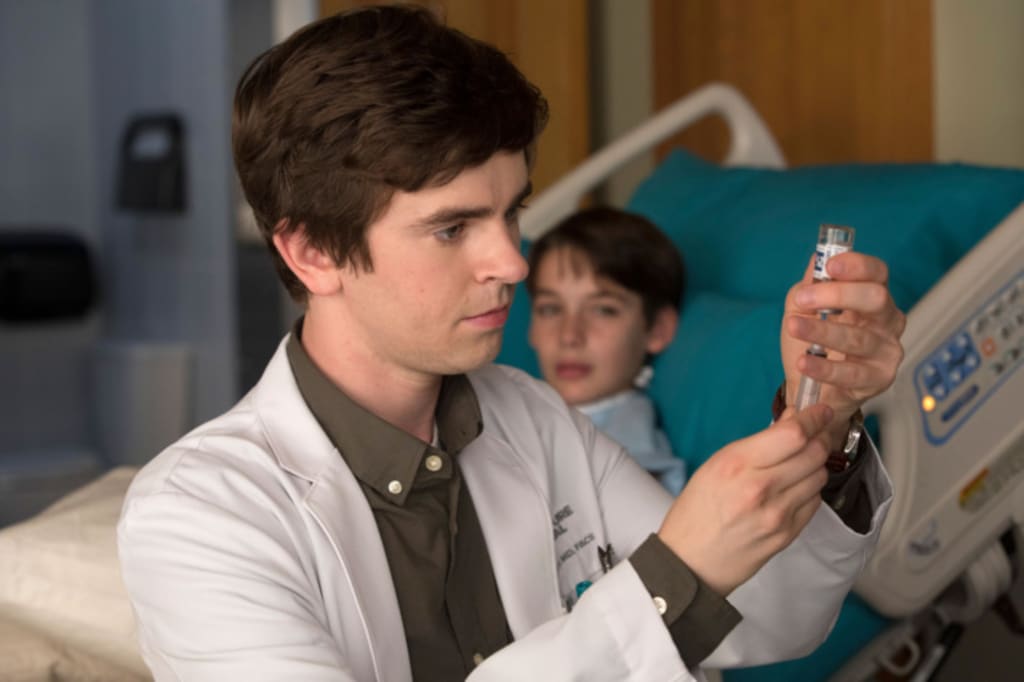For Your Consideration: ABC's 'The Good Doctor'
Awards season is here and I am watching award contenders and sharing my thoughts.

The Good Doctor has quickly become one of the most popular dramas on television. But why? Why is this show about a doctor with autism so very popular? Why has it, in some demographics, surpassed such beloved shows as The Big Bang Theory in the ratings? What is it about The Good Doctor that struck such a chord with a mass audience? The answer may be somewhat insulting to both the show and its viewers but it makes sense: The Good Doctor is mediocrity for the masses.
In my experience, things tend to become wildly popular when they can appeal to the most people. However, for something to be so popular across a wide array of audiences, certain sacrifices tend to be made. These popular things, be they TV shows, songs, movies, et cetera, become popular by being inoffensive. The appeal of this item of popularity is that it never risks alienating the audience. This type of pop culture works very hard at being about nothing so that it does not have to stand for anything, thus it can be adopted across a wider spectrum of potential audiences.
The Good Doctor has that inoffensive quality. The characters are likably bland aside from the lead actor, Freddie Highmore, who is delightfully colorful and deeply sympathetic given his unique qualities. The show operates in a universe that is unchallenging to the lead character and his unique abilities which are consistently rewarded in ways that the audience can root for. Even when our lead character, Dr. Shaun Murphy, does unethical things, he’s rewarded in ways that are simple and easy to follow. They are unchallenging and worthy of a cheer from the audience.
Take, for instance, when Shaun tells a young cancer patient, against the wishes of his parents, that he has terminal cancer. Instead of this being a devastating breach of ethics, we are given a child character who is the living embodiment of the television trope that is "wise beyond his years." The boy already knows his diagnosis and has come to terms with his death. The audience is able to watch Shaun rebel against the parents who are in the wrong by an obvious standard and are rewarded by a kid character they don’t have to worry too much about. You can feel bad and still pat the lead character on the back.
Each time Shaun Murphy breaks a rule, he is rewarded in some way or another, mostly because if anyone on the show acted as they would in a real hospital, this would be a show about an autistic former doctor looking for a job outside of medicine. That’s not to say that all of this fan service is not entertaining. It’s quite engrossing thanks to Highmore’s intriguing lead performance, but you have to be willing to suspend a lot of disbelief and that’s a more than a bit of a cheat when it comes to serious drama.
The conflicts in the stories told on The Good Doctor range from simple to easy. The audience knows which characters are the arrogant bad guys which are the good-hearted good guys and the gray areas of character motivation is where the show plays the most. The arrogant characters occasionally do the right thing and the good-hearted characters break the rules occasionally but only in the service of a very obvious right answer.
It’s the easiest and most palatable types of drama on television. These are not challenging ethical storylines and while the show toys with gray areas to give the characters room to move, the obviousness of each right answer in each The Good Doctor storyline renders the drama pleasant and rewarding without ever getting too complicated.
I am coming off like I didn’t enjoy The Good Doctor. In fact, I did really enjoy it. It’s terrific popcorn television. I could watch hours of The Good Doctor and likely not remember any of it after it’s over. It’s a great piece of background noise while doing other things. It’s uncomplicated and sweet, good-natured with an occasional mildly interesting conflict that I don’t have to invest deeply in because the show has a dramatic trapdoor ready at all times that leads to some kind of rewarding, unchallenging outcome.
All of that adds up to a show that a lot of people will watch and enjoy but not a show of much substance. That’s the hallmark of much popular entertainment: likable disposability. The Big Bang Theory, Grey’s Anatomy, and most other really popular television shows are built on their likable disposability. Is that good or bad? That’s up to the individual viewer. I prefer more challenging material but when I am tired of thinking too much, a show like The Good Doctor is a nice respite.
About the Creator
Sean Patrick
Hello, my name is Sean Patrick He/Him, and I am a film critic and podcast host for the I Hate Critics Movie Review Podcast I am a voting member of the Critics Choice Association, the group behind the annual Critics Choice Awards.






Comments
There are no comments for this story
Be the first to respond and start the conversation.